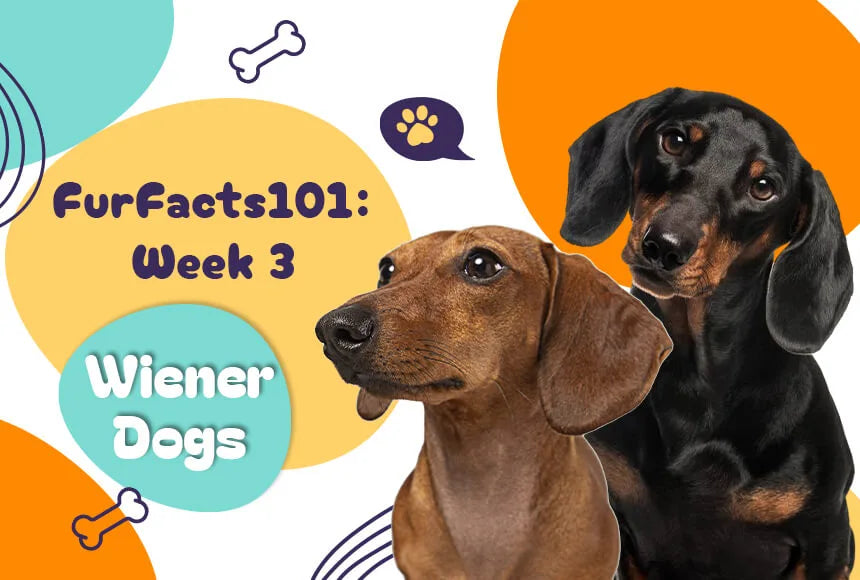Hey there, fur-loving friends! It's your favorite canine connoisseur, Barky, here with another tail-wagging edition of FurFacts101. Today, we're diving into the wonderful world of Golden Retrievers, those lovable goofballs with hearts of gold. So buckle up, grab a tennis ball, and get ready to fall head over paws for these four-legged wonders!
General Information

Let's start with the basics, shall we? Golden Retrievers, or "Goldens" as we like to call them, are medium to large-sized pups. Here's a bite-sized breakdown of what you need to know about Golden Retrievers:
● Height: 21.5 - 24 inches for males, 20 - 22.5 inches for females
● Weight: 65 - 75 pounds for males, 55 - 65 pounds for females
● Life Span: Average of 10-12 years
● Characters: Friendly, Intelligent, Loyal, Playful
Personality and Endearing Traits:
Golden Retrievers are always the most entertaining dogs at a party. These friendly dogs with bouncing tails are intelligent, loyal, and always up for a game of fetch (or 300!). They have what you need, whether you want someone to cuddle with or go on a trip with. Just be ready for their endless energy and ability to make even the worst days bright and full of smiles.
Caring for Golden Retrievers:
When it comes to taking care of these golden gems, here are some key points to keep in mind:
With these care essentials, your Golden Retriever will be the most dapper and delightful pup on the block!
Training Tips:
When training these lovable goofballs, here are some tips to make it a walk in the park (or a romp in the backyard):
With a pocket full of treats and a little bit of patience, your Golden Retriever will soon have a long list of tricks and good manners to show off.
Social Friendliness:
In social interactions, Golden Retrievers are often considered top-tier companions. Is that true? Let's break it down into two parts: their friendliness towards people and their compatibility with other pets.


Overall, Golden Retrievers are great with both people and other animals, which is why they are known as one of the friendliest dog types. Their friendly and loving personalities make them a great choice for people who want a furry friend to share experiences and cuddles with for life.
History and Popularity
Let's take a little trip back in time, shall we? Golden Retrievers were first bred in Scotland in the middle of the 19th century so that hunters could use them to bring back game. Their hunting skills and friendly demeanor made them a hit, and they soon found their way into the hearts and homes of dog lovers worldwide. Today, they're cherished family pets and serve as therapy dogs and hardworking assistance pups.
So why are Golden Retrievers so popular? Well, it's a no-brainer, really. Their gentle temperament, unwavering loyalty, and high intelligence make them perfect additions to any family. Plus, their adorable faces have graced the silver screen, making them stars in movies, commercials, and even our Instagram feeds!
Important Things You Should Know Before Getting Golden Retrievers
Bringing home a Golden Retriever is an exciting decision, but before you take the leap, there are a few important points to keep in mind. Let's go over them, including some common natural diseases or health concerns that Golden Retrievers are prone to:
Understanding these possible health problems allows you to be responsible and give your Golden Retriever the best care possible. Regular trips to the vet, prevention care, and the right health checks can help ensure they are healthy and catch any health problems early.
By considering these important things and being aware of the common health problems Golden Retrievers may have, you'll be better able to give your new pet family member a loving and good home. With the right balance of time, space, care, and proper health management, your home will be the perfect haven for all that golden goodness!
Additional Information You May Be Interested in Golden Retrievers
● Are golden retrievers high maintenance?
Golden Retrievers can be called moderately high maintenance because they need to be groomed, exercised, play with other people, and could have health problems. They have a thick double coat that needs to be brushed often to keep it from getting tangled and shedding. They are busy dogs that need to run around and think every day. They need companionship and social interaction to stay healthy, so they shouldn't be left alone for long times. Also, they may be prone to certain health problems that need to be checked and treated by a vet regularly. But if you are ready to give them the care and attention they need, the love, loyalty, and joy they bring will make it all worth it.
● Are golden retrievers good house dogs?
Yes, Golden Retrievers are usually good house dogs. They are known for being kind and friendly, which makes them great pets for both families and single people. They do well living inside, and if they get enough exercise, mental stimulation, and care, they can be calm and well-behaved. They usually get along well with kids and other animals, which makes them a popular choice for homes with lots of people. But it's important to remember that a dog's behavior can be affected by its character and training, so it's still important to socialize and train them properly to make sure they grow up to be well-adjusted house pets.
● At what age do Golden Retrievers calm down?
Most Golden Retrievers start to calm down and grow between the ages of 2 and 3. Golden Retrievers are known for having a lot of energy and acting very excited during their baby and teen years. During this time, they may be busier, more likely to play and get into trouble. But as they get older, their energy levels tend to level off, and they become more calm and relaxed. Dogs have different personalities and amounts of energy so that some Golden Retrievers may calm down sooner or later than others.
● There are how many types of Golden Retrievers?

Based on their origin, there are three types of Golden Retrievers:
Usually the American Golden Retriever has a darker coat, the British has a lighter coat, and the Canadian is larger with a shorter coat.
When differentiated by color, Golden Retrievers are usually divided into five colors: dark, light, cream, red and white.

Sometimes we can find some black dogs with smooth coat on the internet that are also known as "Golden". In reality, they are not Golden Retrievers, because Golden Retriever's golden coat expression is the result of two recessive alleles.
Therefore, the so-called "black golden retriever" is more likely to be flat-coated retrievers, or a mixture of a golden retriever and another black dog (like a black Labrador).
Conclusion
Well, there you have it, dear friends! Golden Retrievers are the epitome of canine perfection. Due to their friendly, intelligent, and cute, it's no surprise that they are a favorite among dog lovers worldwide. So, if you want to own a Golden Retriever and experience the joy, loyalty, and endless cuddles that come with it, get ready for the adventure of a lifetime.
Until next time, remember it: love, laughter, and a Golden Retriever by your side can make even the ruffest days feel like a relaxed walk in the dog park! Stay spunky, stay funky, and keep their paws dancing!
It's always a short time to stay with you at FurFacts101, and I have to sign off now. Let's see you next time!






